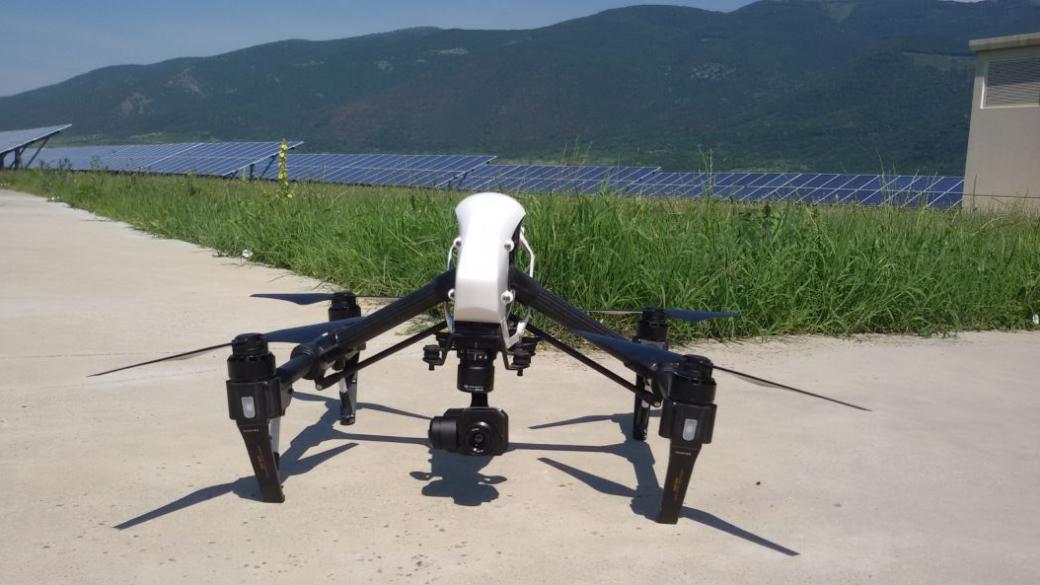Dronevolution
Two Bulgarian companies are ready to make a breakthrough on the international markets with innovative solutions

Drones are already just a tool in technology development that offers business advantage and in-depth, innovation-based analysis.
Shortly after drones became part of the everyday life and business, it was time for an evolution that required technological combinations of hardware and software to meet the needs of the consumers who were one step ahead of the others. The US expert in this area, Colin Snow, writes that he expects more and more economic sectors to take advantage of their capabilities, and slow but steady growth of the companies in the sector.
Zhulieta Dimitrova, CEO of Pro Drone Sys, and Yordan Merakov, CEO of Power Drone, are not unfamiliar faces in the sector. They evolve with developments in the field of robotics and analytical activity in traditional and strategic sectors, such as agriculture, geodesy and mining, insurance, electricity transmission.
“We find solutions to problems that have not been solved yet,” Zhulieta says. She explains that a lot of fertilizers are used in agriculture due to the lack of timely and accurate information on soil types and the individual condition of the plants. Their drone systems deliver this missing information, turn it into a digital technology map and redistribute and reduce the amount of fertilizers by up to 30%, increasing the yields in grain production by up to 40%. The company’s patented drone damper system achieves geodesic accuracy of up to 2 cm, available close to real time, which increases the efficiency of surveyors by up to 20 times on easily accessible terrains and up to 50 times on rough ones.
Power Drone is a project related to the analysis of data from the automated technical inspection of drone power lines. A special software platform for data processing enables the rapid response, prevention, and avoidance of accidents in the event of breakdowns, and planning for greater efficiency. “Our services are aimed at solving the problem of annual technical inspections of the network of electricity distribution companies (EDC). We use drones to collect high quality images and process information with artificial intelligence algorithms for image recognition. In this way, we identify the problematic and weak spots of the network, regardless of the terrain, and provide them in a digitized and easy-to-handle form,” Merakov explains.
Both projects have started with their own investment, with Zhulieta and Yordan relying heavily on their previous experience and their collaboration with specialists in various fields, much different from IT and aviation. Zhulieta says that for three years, she worked with designers, programmers, agronomists, surveyors and various researchers at the Agricultural University of Plovdiv, BAS and the Thracian University, using NASA technologies and their own machine developments.
Power Drone works with Bulgarian developers of software and drone technologies that can offer innovative solutions according to the specific needs of the project. “A drone is just a means by which we collect data, and we have complete freedom to choose the right aircraft according to the job.”
An interesting fact is that both companies were founded with personal resources to solve a specific problem, which is an exception in this niche. “We started 4 years ago and have gradually completed pilot projects with the three EDCs in Bulgaria. The result is that, by now, we have a validated business case and are implementing new projects,” Yordan says. He also relies on external funding from business angels and investment funds.
The major advantage of both companies is the ability to retrieve and analyse information “in time and at an affordable price on a large scale,” Zhulieta says. Yordan adds that the main difference between the Power Drone and their main competitors is the way their drones collect data and process it, so that they can identify subtle technical issues that cause emergencies. He says that at two of the inspected power lines near Sofia, they managed to reduce the unplanned shut down by 7 times.
Both projects have passed the fragile age of a startup and have gone through the phase of “educating” the consumers. According to Zhulieta, demonstrations, pilot projects, university work and publications have yielded results, “but only resourceful and business-oriented people seek innovation.” The recognition also came when they joined the John Deere Operations Center – an online precision farming platform. “In the end, innovative solutions must also have an economic rationale and offer lower operating costs to the client. If, five years ago, the EDCs were having certain doubts about drone inspections of power lines, today, some clients are looking for such a service themselves,” Yordan says.
Both companies aim at entering the international market with systems that are one step ahead in drone evolution. Yordan cites the use of artificial intelligence and neural network algorithms as prerequisites for refining the analytic software platform and for developing autonomous drone inspection solutions without operator intervention. Drone Power will test innovations in upcoming projects in Romania and Northern Macedonia. “The electrical networks and elements are pretty similar across the globe, so it’s relatively easy to adapt the product to each new market and to meet specific needs,” he says.
For Zhulieta, the next goal is entering international markets, with Europe, Australia, North America being the main focus. She firmly believes that both companies have a place in drone revolution because “the problems we solve are global and our solution is easy, fast and affordable.”

